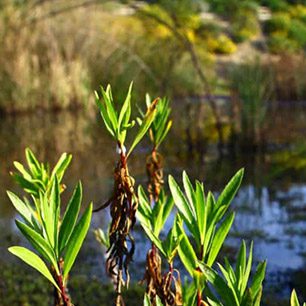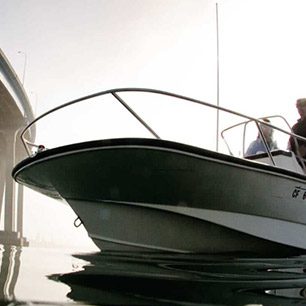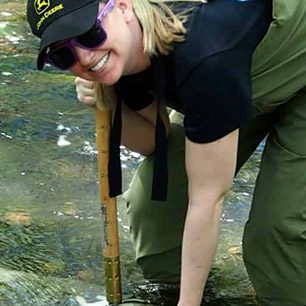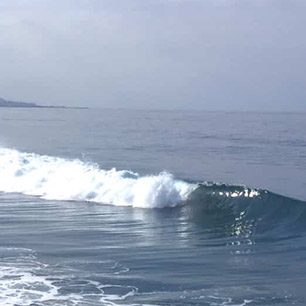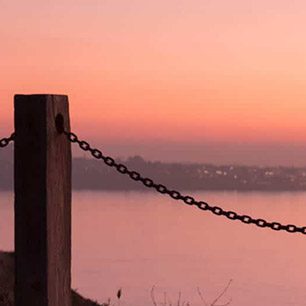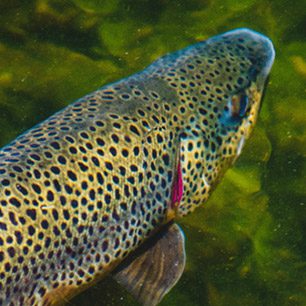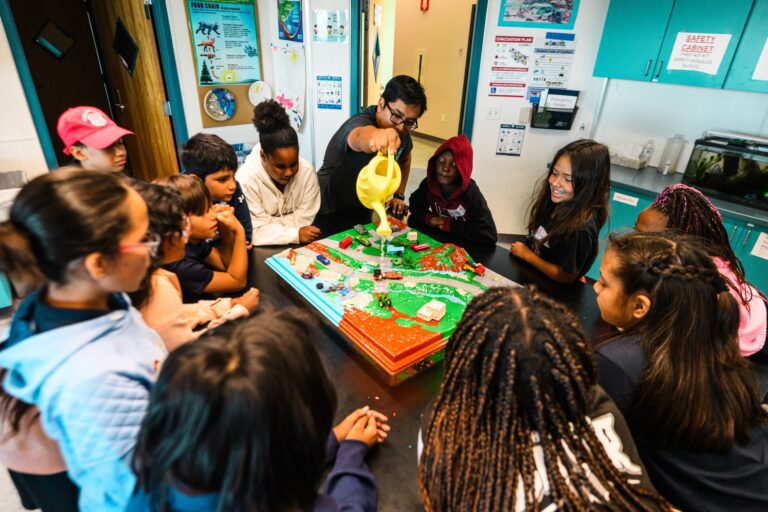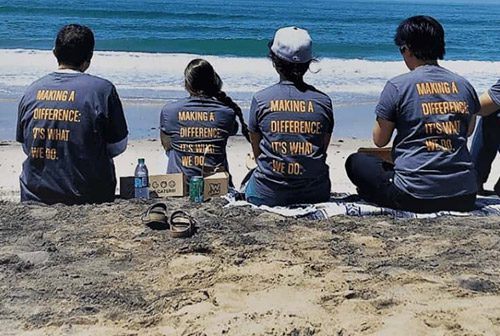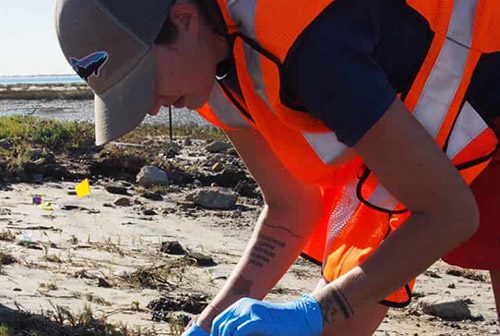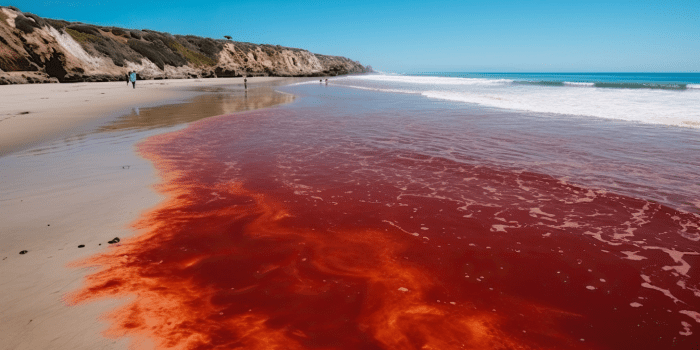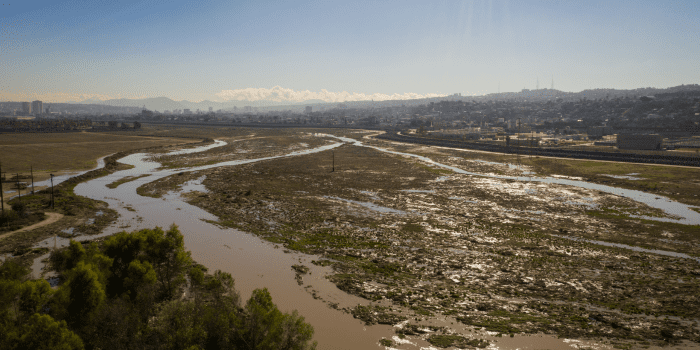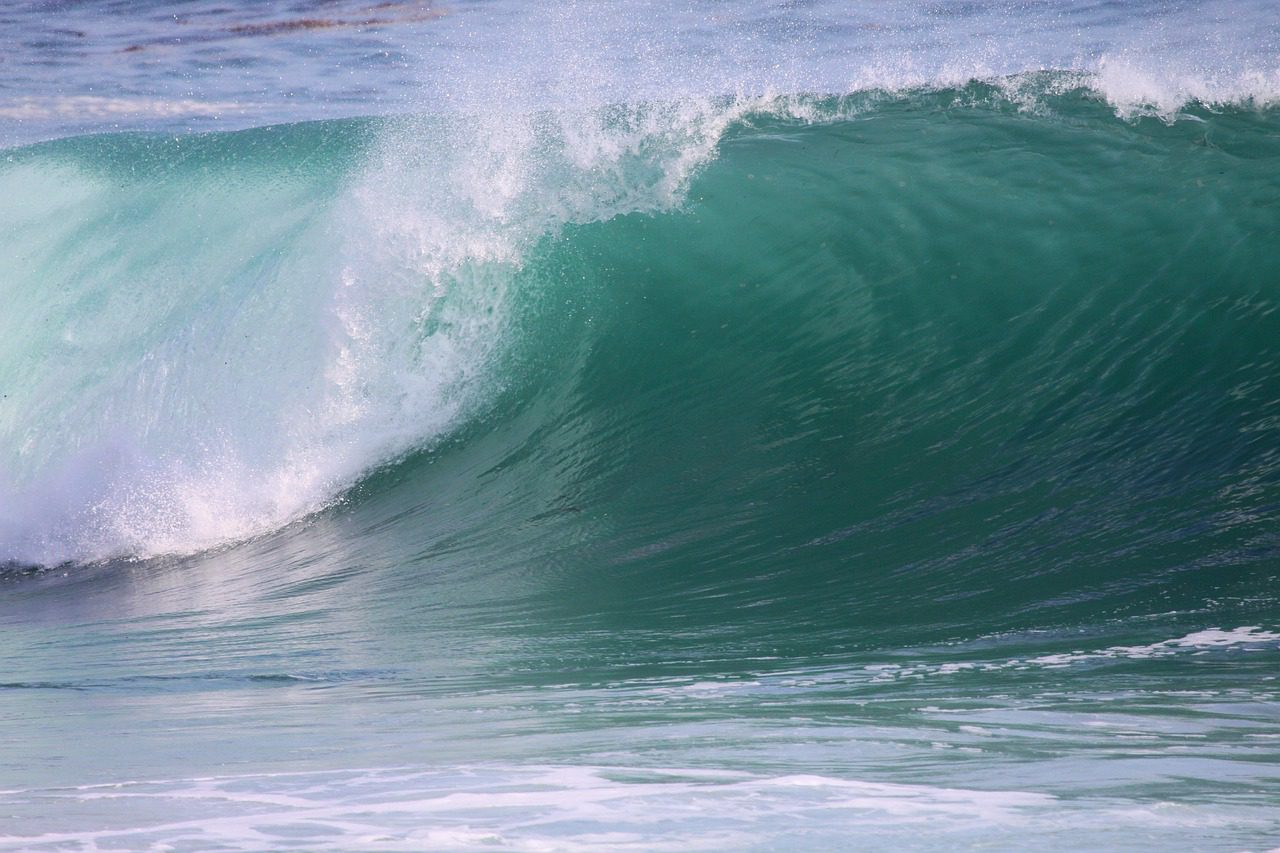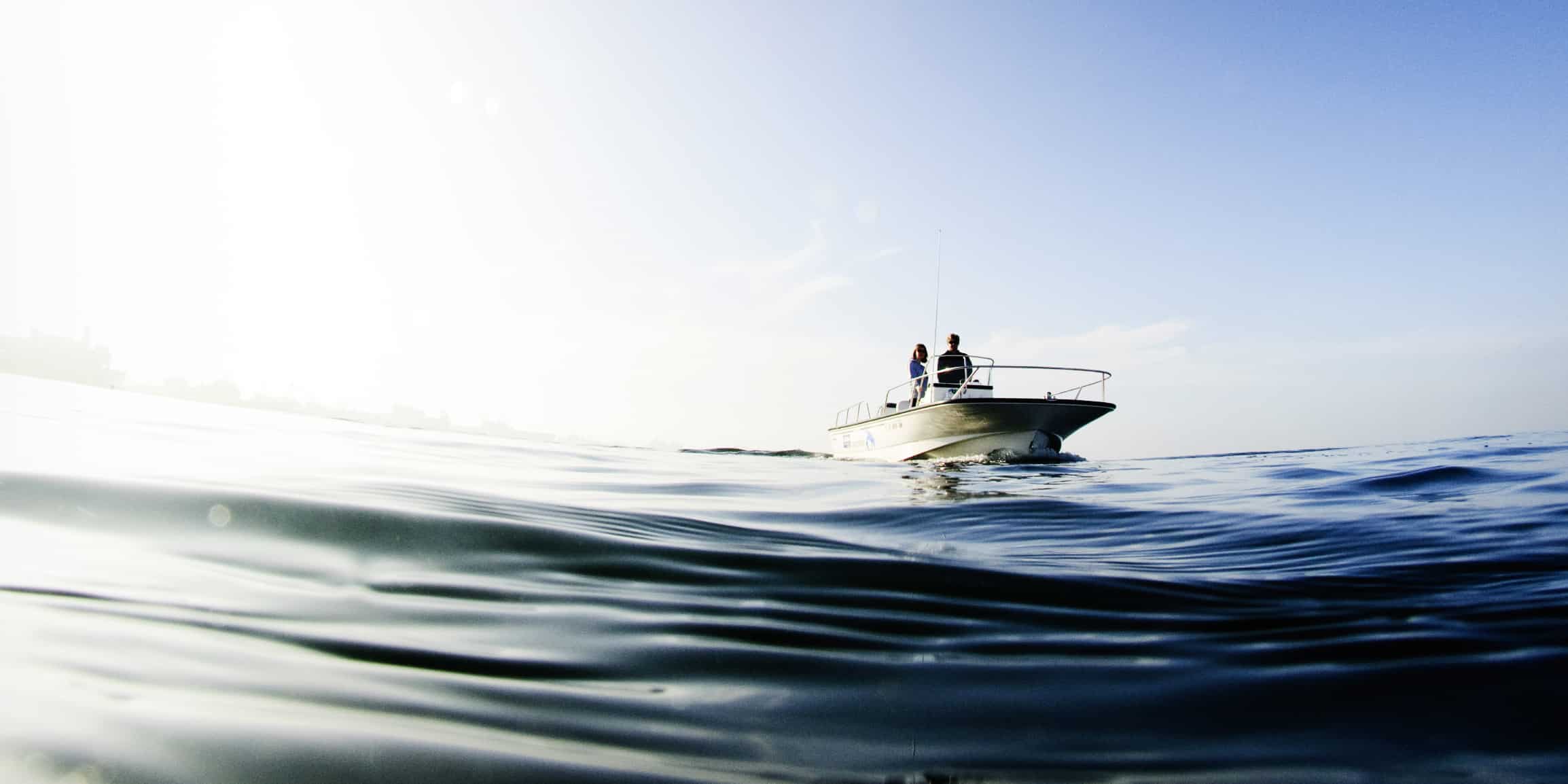As San Diego Coastkeeper’s marine debris coordinator, I get to witness folks engaging in direct environmental stewardship and community action. Beach cleanups are a fun way to engage with other like-minded individuals and have an immediate positive impact on the environment. But our stewardship doesn’t need to stop on the sand. Did you know that you have the power to directly impact marine debris and water pollution, even when you are far away from the beach? Your home is connected to the beach and ocean by the watershed you live in.
When it rains, stormwater flows down streets in your neighborhood, accumulating debris and pollutants on the way. This goes into storm drains – holes in the sidewalk or grates in the road (often with an image of a duck or dolphin painted on top, just to remind you where they drain to) – and flows untreated into rivers and the ocean. Urban runoff is a serious threat to water quality and the number one source of ocean pollution here in San Diego. Although trash is often obvious and unsightly, pollution in the water like pesticides, fertilizer, bacteria from pet waste, oil, and brake dust are hard to see. How often has your favorite beach been closed or had a health advisory? Unfortunately, that’s not something beach cleanups alone can resolve. We’ve got to take that cleanup energy, and spread it throughout our watersheds.
So, what can you do?
If you care about the health of our rivers, coast, and ocean, here are some small changes you can make to make in your own neighborhood or home that will make a big difference to conserve water, reduce pollution, and fight back against marine debris.
Save water and protect the ocean from outside your home
Urban areas are typically paved with a lot of impervious surfaces (think sidewalks, roads, driveways, and parking lots). These surfaces are like a cap on the earth, preventing water from soaking into the ground and leaving water no option but to flow over the top, picking up trash and pollutants as it goes. Creating places for water to sink into the ground – through use of impervious surfaces or bioswales – will slow the flow and give plants and soil a chance to filter out some of the pollutants. What else?


- Sweep sidewalks and patios with a broom instead of hosing them down with water. This reduces runoff potential and saves water.
- If you own your home, consider installing drought-friendly landscapes like native plants, rain gardens, and bioswales. You’ll use far less water to take care of them than you use on a traditional lawn, which will reduce the runoff from your property considerably, and again, saves water.
- Install rain barrels. Collect the free rainwater falling from the sky and use to water your plants. Yes, even in often-dry San Diego, you can get a considerable amount of water this way. Using the water that falls here reduces the demand on the water that we import from far away places.
- Wash your car at the car wash instead of at home with a bucket of soap and water or hose. This might feel counter-intuitive, but a home wash typically uses more water and allows soap to get into the storm drain (and out to the ocean), and car washes filter and recycle the water they use.
- Fix broken sprinklers or alert your HOA to leaks as soon as you detect them.
- Use drip irrigation to water plants instead of a pop-up sprinkler system.
- Ensure lids are tightly closed on trash cans, and pick up stray items that may have tipped out on garbage collection day. This can help prevent stray bits of trash from getting into the storm drains and to the ocean.
Save water and protect the ocean from inside your home
There are a lot of opportunities for saving water and protecting the ocean that originate right inside your very home. Can’t make it out to every beach cleanup? You can still contribute to the effort with the following tips.
-


Bottle caps collected at a 2018 beach cleanup. Drinking filtered tap water can cut back on waste from plastic bottles. Be mindful of what you rinse down the sink. Small plastics like contact lenses break down into smaller and smaller pieces, a perfect breeding ground for bacteria- and that goes in your drinking water. Plastic microbeads commonly found in toothpaste, shower gel, exfoliating face scrub, and other beauty products get rinsed off you and into our water supply. Some are so small that they pass through wastewater filtration and into the ocean.
- Install a low-flow toilet to conserve water when you flush. Baby wipes and feminine hygiene products should NEVER go down the toilet. Ensure they go in the trash.
- Get a water filter and drink from the tap instead of buying single-use water bottles. Plastic bottle caps and single-use water bottles make up 7 percent of items found at our cleanups, and the caps in particular are frequently found inside the stomachs of dead shore birds. Avoiding bottles is not only better for our wildlife and your wallet, but by not using them you are helping reduce our reliance convenient plastics and conserving energy consumed in the manufacture and transportation of each bottle.
Feeling inspired? Share with us one way you are changing your behavior at home to help reduce water use and prevent marine debris by posting online with #CoastkeeperConservation.

